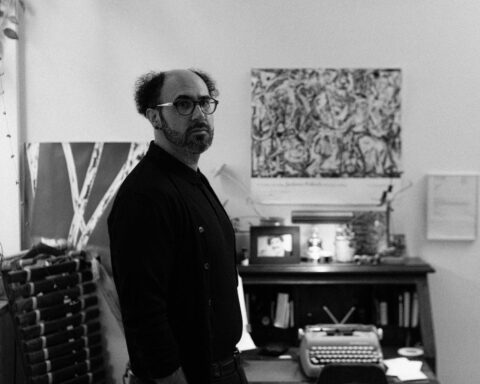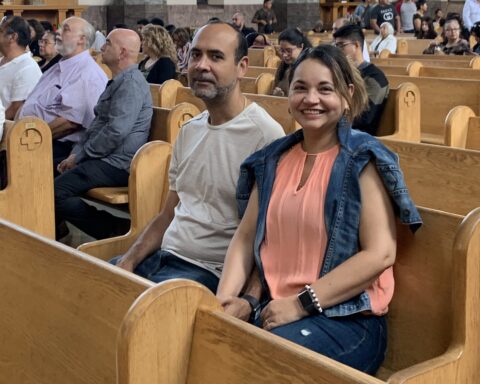 Multiculturalism should be off-limits in Canadian politics.
Multiculturalism should be off-limits in Canadian politics.
No party should leverage prejudice against minorities – visible or otherwise – in a plot to win elections, and to a lesser extent to enact laws. After an election like the nation’s 42nd, this, at least, should be the new moral rule in federal partisan jousting.
As far as the annals of xenophobia are concerned, the electoral debate over the niqab – a thin veil of cloth worn by some women in an act of devotion to their Islamic faith – wouldn’t make a footnote.
In a world where people are killed for being gay, lesbian or trans; where people march by the tens of thousands to protest refugees (in Europe); and where armed citizen-militia groups patrol the border to stop undocumented immigrants (in the United States); Canada remains an island of relative calm.
New territory
But by our own standards, #elx42 is new, odd and uncomfortable territory. Canada’s minority groups are the most uncomfortable.
They feel the impact of the Conservative Party’s dalliance with state-run dress codes much more pointedly than the media and political establishment, where most of us, to use Stephen Harper’s term, still remain pretty “old stock.”
There have been verbal attacks on women in hijabs in Toronto and Ottawa, physical ones against women in niqabs in Montreal, and demands of renunciation of heritage by some Canadians because of the colour of their skin, during this election.
“There has been a rash of ‘take back our country’-style citizen campaigns…”
There has been a rash of ‘take back our country’-style citizen campaigns, with enthusiasts amateurishly depicting themselves as keepers of a national flame burning too low because of the political correctness of elites.
What a brash revision of the facts. Canada’s immigration policies haven’t been asleep at the wheel.
The courts, and the most judicious and capable legislators, have put in place a system for separating cultural norms that are truly harmful and those that remain the business of individuals in a liberal democracy. You can keep the onslaught of regressive nationalism parked inside; the government wasn’t born yesterday.
No revolution needed.
After this brush with repressed ethnic aggression, there will need to be a space to review what the election has done to Canada’s evolving political norms. There are mature ways of dealing with ethnic tensions and they won’t be undertaken if Harper wins.
There are mature ways of dealing with ethnic tensions and they won’t be undertaken if Harper wins.
An appeal to the courts’ decision to reject the Conservatives’ ban on niqabs during citizenship ceremonies, legislation to outlaw niqabs in the public service, and a tip line for citizens to report ‘barbaric cultural practices’ – these will all prolong the social license for bigotry seen during the election.
They’ll be helped by laws that permit Ottawa to strip the citizenship of dual citizens and rules designed to prevent polygamists from entering the country.
Sense of unity at risk
Unless the Conservatives wake up to the damage they’ve caused, immigrants’ sense of belonging and citizens’ sense of respect of minorities will continue to erode. The fragile sense of unity behind multiculturalism will continue to fray.
The impacts will be felt outside Canada. Its special reputation as a country that seeks its best in ending arbitrary intrusions on individual liberty will be dented. As a global citadel for the cause of pluralism, Canada has few better strategic strengths to overcome its shortcomings. Once lost, that aura cannot be regained.
If the Conservatives don’t win, there can truly be a period of healing.
A new government could call for [a review of multiculturalism policy].
Multiculturalism, a forty year-old policy, hasn’t had a major review in decades. A new government could call for one. It could find a new direction and purpose, while its principles stay in place.
The targeting of Muslims, and indeed Jews (this group is on the receiving end of most religion-based hate crimes according to StatsCan) is a consequence of the war on terror and conflicts in the Middle East and Central Asia today, not the 1970s.
Celebrate what’s been accomplished
But we can also celebrate what multiculturalism has accomplished.
The benefactors of Canada’s four-decade run with the policy are here to help. The immigrants and children of immigrants who navigated their likes and dislikes autonomously, the citizens who have grown their understanding of the world beyond Canada and grown their ability to empathize. These citizens have stories to tell, and they are more numerous than the bigots.
The niqab debate shouldn’t disappear. It should return to where it belongs.
The process of overcoming the fear present during the niqab debate should include an infusion of money for cultural, academic and media projects and agencies that aim to celebrate cultural differences – both new ones and old.
That includes supporting aboriginal languages and telling the history of the residential school system, as well as telling the story of Canada’s French and British roots.
The niqab debate shouldn’t disappear. It should return to where it belongs. In universities and publications, the effects of the niqab on an individual – or the clash between any tradition and human rights – can receive an examination by knowledgeable people without the risk of spurring an angry mob.
In a free society, the most convincing arguments on whether or not to wear the veil will always reach those considering it for themselves, without the outsized and unfair powers of the state to tilt the outcome towards the biases of the majority.
Published in partnership with iPolitics.ca.




